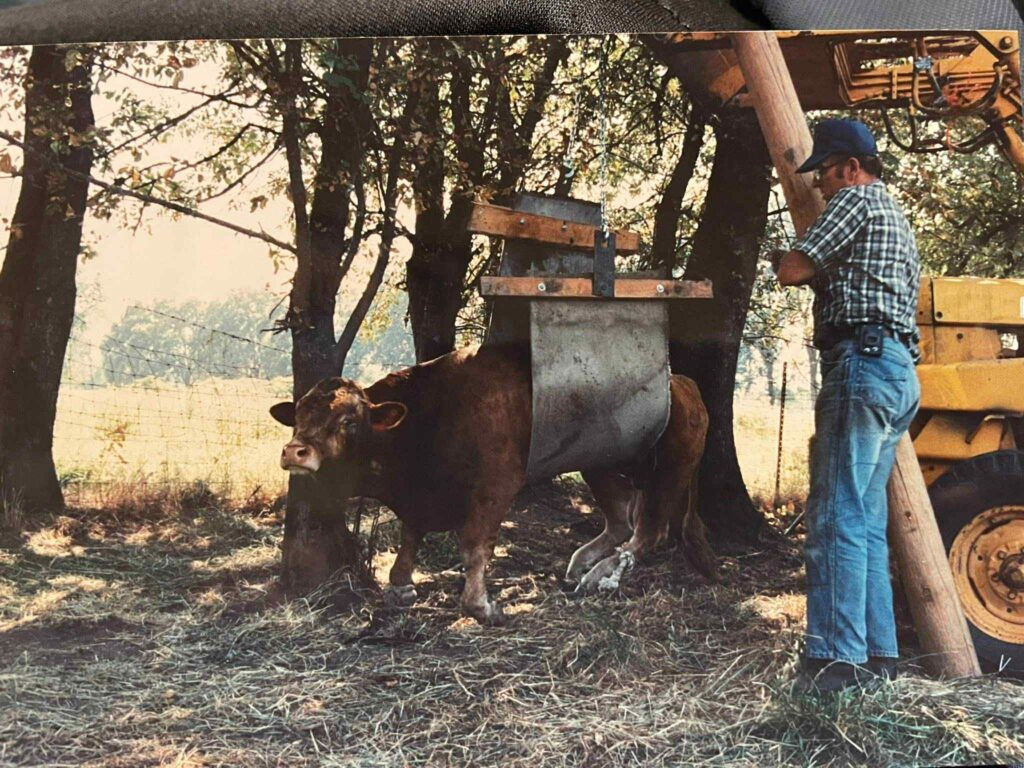Brick Walls and Burning Questions: Seeking Truth in Covelo -No Answers Yet: The Unfinished Story of Chief Bill Baker – Covelo history trip
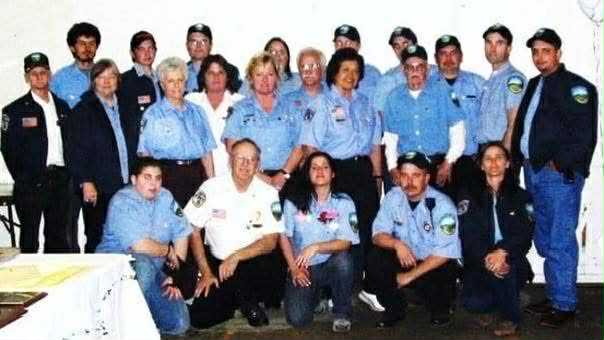
We’ve hit wall after wall trying to uncover the truth in this troubling case. Attached are the CHP’s courteous but unyielding responses, and the only official facts we’ve received—a month-old press release that leaves the most pressing questions unanswered.
Though Covelo isn’t our usual beat, we thank the three readers who sounded the alarm about the strange and tragic death of Bill Baker—a man who spent decades in service as Covelo’s fire chief and assistant chief, protecting a community he called home.
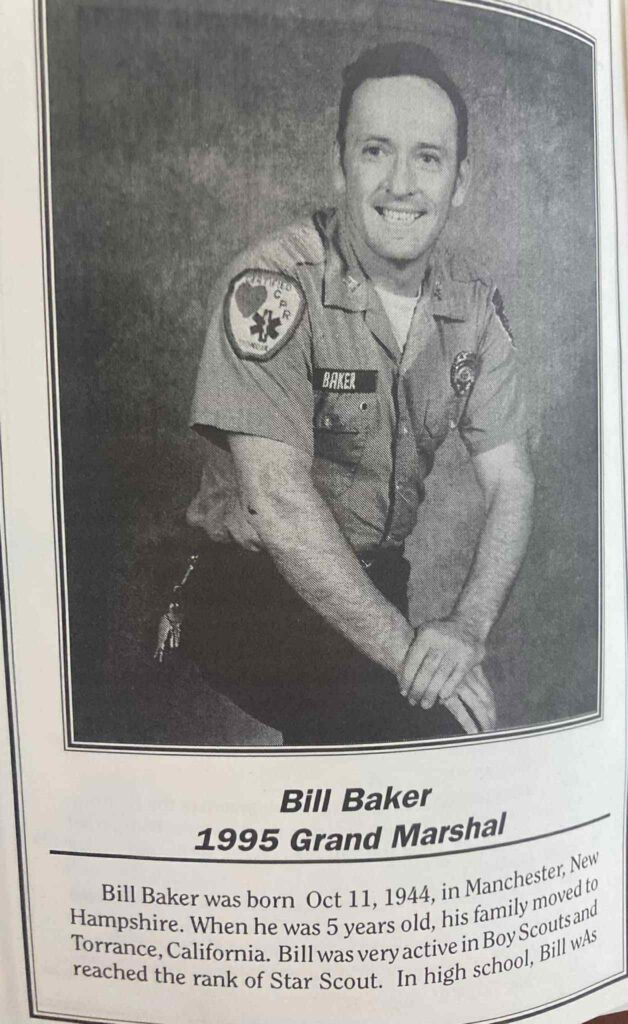
Bill Baker was struck and killed while walking along State Route 162 at approximately 7:59 p.m. on October 12, just north of Poonkinney Road. The driver fled the scene.
Investigators determined that Bill Baker was struck by a 2019 Toyota 4Runner driven by 20-year-old Sandra Yocselin Acosta Deloera of Covelo, as he walked within the southbound lane of State Route 162. The California Highway Patrol was later contacted by her family and made contact with her.
At Mendocinocoast.news, we’re open to looking into any case brought to us. But this one—this man—had a life of service. Bill Baker spent decades as a volunteer firefighter in Covelo, including time as chief and long-serving assistant chief. That legacy made us lean in harder.
And yet, everywhere we’ve turned, we’ve hit walls. Nearly a month after Baker’s death, we still have no verifiable answers. The only official information comes from a CHP press release issued shortly after the incident. It has not been updated. The police report—normally a public document—is still unavailable. Agencies we’ve contacted refer everything back to CHP, which, 23 days later, has provided no further detail.
Meanwhile, social media has flooded with speculation—some of it unverifiable, some of it flat-out false. We’re sticking with the case until we get clarity.
Here’s what we do know: Baker had recently undergone a heart procedure at a Sacramento hospital. The hospital reportedly arranged a ride home for him through a transport service. But this is where the questions begin.
Our investigation shows Baker exited the transport vehicle more than a mile from his home and began walking down the highway in near-total darkness. Why was he dropped off so far away? Why did he get out of the car? What transport company was involved? Was the vehicle still nearby, or did it leave him there? Why was he walking in the lane? Was he medically cleared to be released in this way?
And then, of course, there’s the hit-and-run itself.
We’re not letting go of this story. Not just because it’s bizarre. Not just because the silence is deafening. But because Bill Baker served his community—and his community deserves answers.
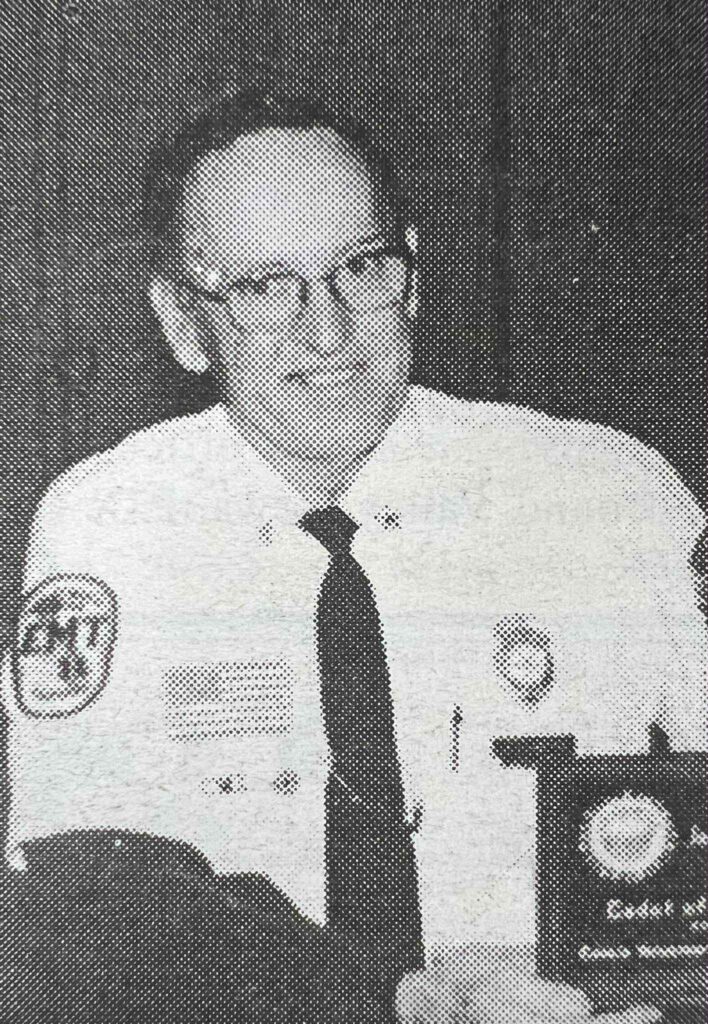
The official reason for withholding the police report? “Ongoing investigation.” But how, exactly, would releasing a public document—a report that’s supposed to be accessible to the public—impede that process?
If there’s a legitimate reason, we’re listening. But we’ll keep asking.
Let’s be honest: everyone directly involved in the case likely knows what’s in that report by now. Releasing it wouldn’t compromise the investigation—it would help tamp down the wildfire of rumors and misinformation that’s been spreading across social media like unchecked brush.
Transparency isn’t a threat. It’s a firebreak.
Elsewhere—at the hospital, for instance—people seem to be hiding behind the looming specter of litigation. And yes, we imagine there will be litigation. But the fact remains: no one seems to know who drove Bill Baker home. Multiple agencies and individuals have gone quiet. That silence is exactly why people contacted us in the first place—and they were right to do so.
We’re not here to resurrect internal fire department controversies. Folks have brought those to our attention, but so far, they don’t appear relevant to the facts at hand.
What is relevant is the broken system of patient transport. Getting someone home safely after a hospital discharge should be a basic part of healthcare—funded, insured, and coordinated. For Pete’s sake, this should be common sense. But the Trump Administration continues its campaign to gut health coverage wherever it can. Someday, we hope sanity returns, and people realize that cutting these services costs society far more than whatever fake savings are being sold.
And let’s be honest: friends and family often lose sight of just how vulnerable someone is after a procedure. Hospitals aren’t paid—or equipped—to extend a hand from discharge to doorstep. That gap is where people fall through.
So what happened to this man who gave so much of himself to his community? We will keep asking.
Below is the response from the CHP Garberville office to our California Public Records Act request for the police report. It was denied.
Law enforcement agencies no longer release police reports the way they used to—because the news media rarely asks. They issue a press release with minimal detail, and the head-nodders in the media print it without question. That makes it harder for anyone else to get answers.
Brittany Maria Zapanta, who referred to herself as Baker’s honorary niece and served alongside him, said the transport driver was lost, which somehow led Baker to exit the vehicle. Social media offered a swirl of conflicting versions: some claimed the driver was lost and Baker, confused, got out to flag down another car for directions. Others said cell phones didn’t work—or were dead. Still others suggested someone else was supposed to pick him up.
None of these accounts fully add up.
Zapanta and others hoped we could help uncover what really happened on that highway. Given how strange and troubling this case is, we’re committed to finding answers. Mr. Baker’s life of service deserves nothing less.
“He didn’t have children of his own, but he had a vast family—chosen family,” said Brittany Maria Zapanta. “Most were nieces and nephews who grew up calling him Uncle, myself included. Every kid who came up through the fire department knew him as Uncle Bill.”
Zapanta said Baker was a constant in her life—a backbone of the community and a man whose presence meant everything.
“I was just a fellow firefighter. I was his driver for the ambulance with him as the EMT for 10 years. I was more than a friend. I was his niece by choice not by blood. I grew up, calling him, Uncle just like all the other kids of the firefighters.”
The road was lined with grief and gratitude last weekend, as a funeral procession honored the life and service of Bill Baker.
“I remember when I was 8 years old I was so stubborn and hotheaded. I was mad at him about something and scared to death of Barbies. He told me when I was done having a tantrum I was being a brat I could return the Barbie he gave me to him. Needless to say that lasted 10 minutes before I walked across the street from my house to his and apologized to him. He helped me grow up.”
Zapanta wasn’t among the first to bring us into this story, but she expressed gratitude that we’re committed to uncovering what really happened.
“Everyone in Covelo has a story to tell about Bill. His brother asked him to come to Covelo. He worked his way through the ranks in the department. Got a job on a ranch. Was an arson investigator. He worked in Covelo fire fire for over 45 years. He has been there bringing babies of babies in this world to being with someone as they took their last breath.”
Zapanta said Baker lived alone, in a house just across the street from the Covelo fire department. The accident occurred roughly two miles south of his home.
We don’t know yet. But we do know this: the refusal to speak, the reluctance to release public records, the swirl of half-truths and social media fog—none of it honors the man who gave so much of himself to Covelo.
The answers to these questions, like so many things in this beautiful but shadowed corner of Mendocino County, are rooted in the past. In systems that don’t talk to each other. In institutions that have grown too quiet. In a culture that sometimes forgets its own heroes.
Let us take you there. Not as insiders, but as witnesses. As listeners. As people who believe that truth, even when inconvenient, deserves daylight.
We’ll keep asking. We’ll keep walking the road. And we’ll keep telling the story of Uncle Bill—because his life mattered, and so does what happened in the dark.
Covelo is its own kingdom, of course—a kingdom still cloaked in the long shadow of the Mendocino Indian War, which, as the horrified California Legislature concluded in the 19th century, was no war at all, but a massacre.
That darkness runs deep. The forced relocations of tribes from the Coast and surrounding regions to the Round Valley Reservation—only to be invaded again during the so-called “War”—led to the near-erasure of the county’s oldest Indigenous group, the Yuki. Highway 162, where Bill Baker died, was once the single artery in and out, controlled by the U.S. Cavalry after statehood. It was the route of forced marches—one end from Chico, the other from Fort Bragg.
And yet, Covelo is a place of staggering beauty. Settlers had their own heroes. Some learned to live alongside their Indigenous neighbors. When waves of hippies arrived, they struggled to fit in, sparking legendary fights at the Buckhorn Saloon. The Covelo flour mill once provided work across communities until its closure in the mid-1970s. Lumber’s decline hit hard.
Then came a new nightmare—one that rivaled the violence of the 19th century. The arrival of Big Marijuana Growers during the price boom from 2000 to 2019 brought cartel muscle, chaos, and opioid addiction at levels not seen in generations. The Mendocino County Sheriff’s Department faced its greatest challenge not in the population centers—not in Ukiah, Fort Bragg, Willits, or the South Coast—but here, in Covelo.
Even before the cartels, Covelo’s crime and violence eclipsed the rest. A resident deputy program helped, and the current sheriff—like the last—is deeply valued for one reason: both grew up knowing this inland kingdom, its beauty and its burdens, better than most.
This is the terrain we walk as we seek answers about Bill Baker. A man of service, lost on a road that has carried too much history. We are semi-outsiders, yes—but we are listening. We are asking. And we are not turning away.
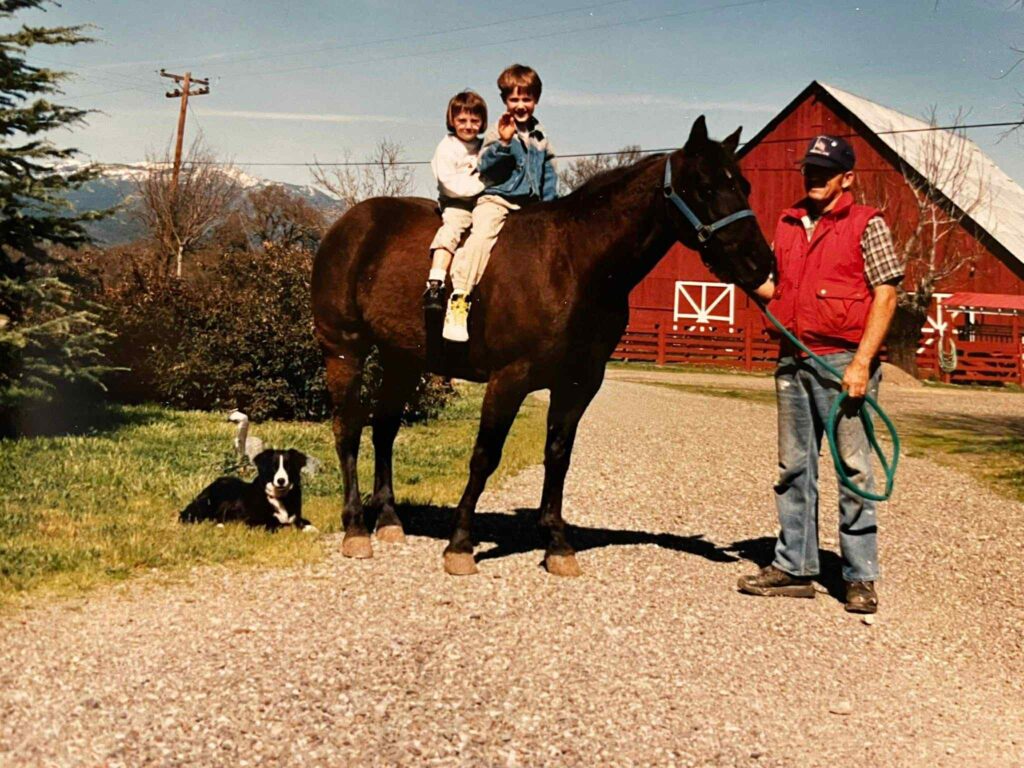
Things have improved since the crash in cannabis prices. The outside creepsters mostly packed up and left—trailing trash and trouble behind them. Through it all, the fire department has remained the heart of Covelo’s community. Yes, there have been internal squabbles too. As a Fort Bragg couple, we won’t try to parse those. But we were invited into this story. It’s in our county. And we care deeply about what happened to Chief Bill Baker.
We believe something is being covered up. We don’t know why. But we do know what we’re asking for isn’t complicated: Who drove him home? Who called 911? Why did the driver flee the scene? What charges—if any—will be filed against the transport service, the hit-and-run driver, or anyone else involved?
This man was a firefighter. A giver. He died in the dark.
We intend to shine a light on the moment of his death—and learn more. We also hope to get to know Covelo better. Not just its pain, but its people. Its history. Its resilience.
Because stories like this don’t just belong to one town. They belong to all of us.
